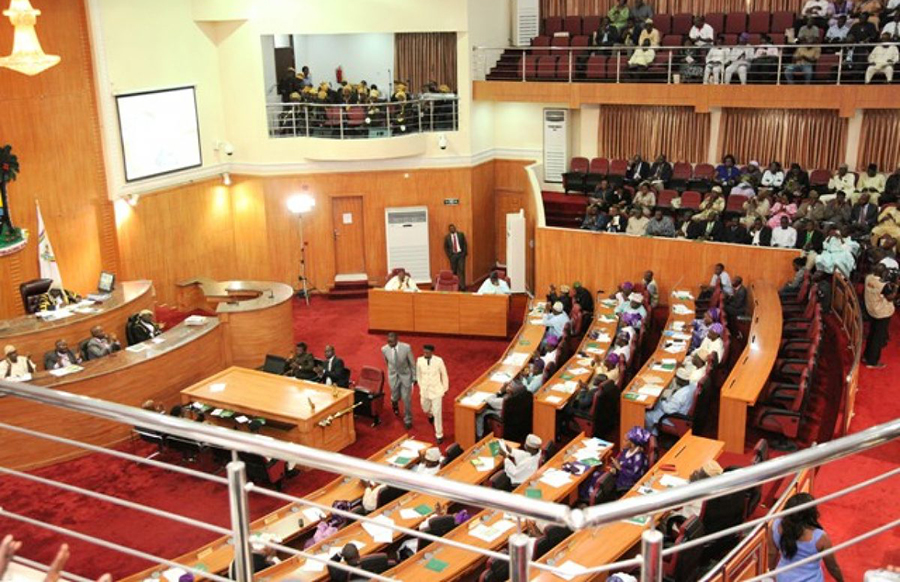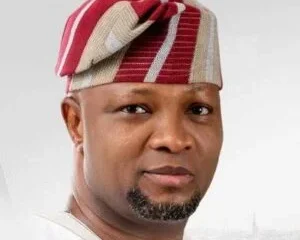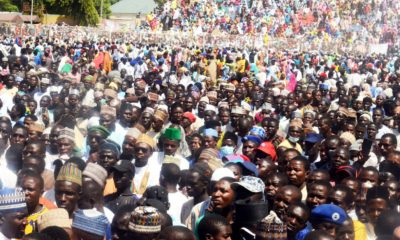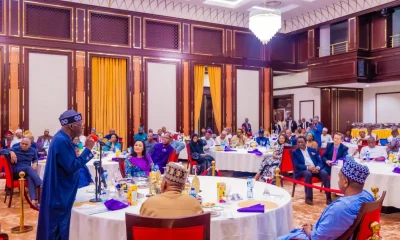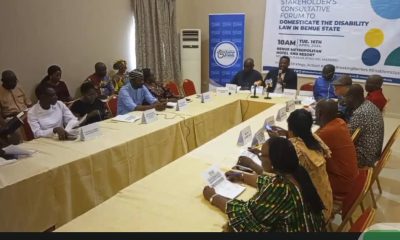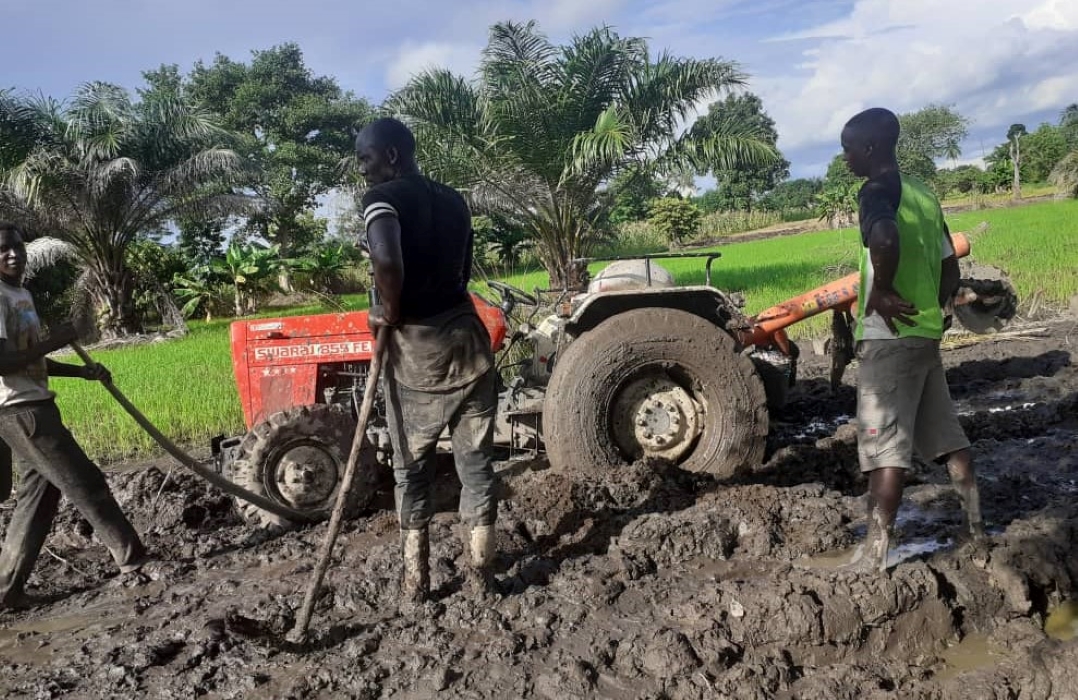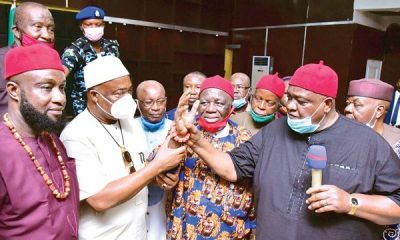EDITORIAL
Transforming Education for Economic Development

The economic transformation experienced by the East Asian Tigers was said to have been achieved at least between 25 and 40 per cent through demographic dividend. Demographic dividend is the economic growth derivable from a country’s youth population in the working age group.
In Nigeria, data from the Demographic Statistics Bulletin of the National Bureau of Statistics (NBS) show that majority of the population lies between ages 0–14, followed by the youth aged 16-30.
Statistics also reveal that youth form at least half of Nigeria’s projected 200 million population. What this means for the country is a high dependency rate, with huge numbers of the dependent population entering the working age group on a daily basis.Increasingly, youths in the country are working to create a better future for themselves amidst growing unemployment and limited opportunities, as there has been no concise efforts or policies aimed at improving the quality of and access to education and harnessing their potential.
According to the World Youth Report, one in four people of secondary-school age are not enrolled in a school and less than half of all young people are participating in the labour market. And even among those that do have a job, one in six live in extreme poverty.
It is high time the government began to look at and interpret these numbers not just as statistics, but a waste of useful capacity for the attainment of its development goals.
The theme of the 2019 International Youth Day marked every August 12, “Transforming education”, highlights efforts to make education more relevant, equitable and inclusive for all youth, including efforts by youth themselves. This year’s event examines how governments, young people and youth-led and youth-focused organisations, as well as other stakeholders, are transforming education and how these efforts are contributing to the achievement the 2030 Agenda for Sustainable Development.
In Nigeria, just like the rest of the world, significant transformations are still required to make education systems more inclusive and accessible. Available statistics for the world show that only 10 per cent of people have completed upper secondary education in low income countries; 40 per cent of the global population is not taught in a language they speak or fully understand; and over 75 per cent of secondary school age refugees are out of school. Additionally, indigenous youth, young people with disabilities, young women, young people belonging to vulnerable groups or in vulnerable situations, etc. are facing additional challenges to access education that respects their diverse needs and abilities as well as reflects and embraces their unique realities and identities.
According to the UN, making education more relevant, equitable and inclusive is crucial to achieving sustainable development, adding that education is a ‘development multiplier’ in that it plays a pivotal role in accelerating progress across all 17 Sustainable Development Goals, be it poverty eradication, good health, gender equality, decent work and growth, reduced inequalities, action on climate or building peaceful societies. Education should lead to effective learning outcomes, with the content of school curricula and pedagogy being fit for purpose, not only for the 4th industrial revolution and the future of work and life, but also for the opportunities and challenges that rapidly changing social contexts bring. Ensuring access to inclusive, quality education is, therefore, essential for young people’s chances of finding decent work. Quality primary and secondary education are not enough. They should be complemented by affordable technical, vocational and tertiary education that provides youth with relevant skills for employment and entrepreneurship.
Nigeria can have a cue from the East Asian Tigers by optimally harnessing the potentials of the youth population education, particularly acquisition of relevant technical and soft skills to enable them fit into the 21st Century work place to develop careers. Such skills, particularly in Science, Technology, Engineering and Mathematics (STEM)-based activities and programmes, will prepare the youth as contributors to the economic development of the country.
EDITORIAL
Oloyede: Accolades to Unconventional Public Servant

Akin to an eagle-eyed combat pilot on a reconnaissance mission – making his flight preparations, loading the right ammunition and aiming at his target without missing, so was Prof. Is’haq Olarewaju Oloyede, when he arrived the headquarters of the Joint Admissions and Matriculation Board (JAMB), upon his appointment in 2016.
In the first few months of his assumption of office, activities pervaded to the lowest ebb at the JAMB headquarters.
Like a fighter pilot on a rescue mission, Oloyede embarked on a discreet but holistic audit of the board. He was simply planning how to navigate his flight in order to hit his target, without missing.While in the closet planning, there was a shift in the timetable date of the Unified Tertiary Matriculation Examination (UMTE) for that year and tongues went wagging, mostly from staffers of the board that the newly appointed Professor of Islamic Studies and “controversial” former Vice Chancellor, University of Ilorin, was totally confused and clueless about the demands of the office and the direction to take the examination body.
After the audit, Oloyede gathered enough information and momentum. He then released his mission and vision for the examination body, chief of which was to reposition the board technologically to eliminate all forms of examination malpractices and timely release of results to candidates – three days of sitting for the examination.
Those pronouncements were followed with wide ranging reforms, including unraveling of mind blowing malfeasance of corruption involving several workers of the board. For instance, a staff of the board in Benue State was involved in massive fraud of stealing millions of naira from the sale of examination scratch cards which she claimed was swallowed by “a snake” from the office save.
In Nasarawa State, the staff of the board who was also caught in fraudulent financial malfeasance claimed his car was burnt along Abuja-Lafia road with all the examination scratch cards that were meant for sale to prospective candidates in the state.
In Kogi State, the staff of the board with itchy fingers claimed he had borrowed money to the state civil servants who were being owed several months of salaries. The ugly stories of massive stealing of the board’s funds reverberated in many states including the headquarters where the former helmsman, Prof. Dibu Ojorinde is currently standing trial for allegedly stealing hundreds of millions of naira.
With those monumental financial malfeasances, candidates were hitherto ripped off of their hard earned money as the examination body was shrouded in fraudulent and chaotic scheming. Consequently, floods of complaints poured in from several quarters on pre-registration and post examination irregularities.
But Oloyede’s surgical knife had cleaned the process and restored sanity after one year in office. By the second year, the examination body had saved over N8 billion and remitted same to the Federal Government, a remarkable departure from about N300 million the examination body was hitherto remitting per year to the government.
Thus, in 2018, the Muhammadu Buhari administration had to review downward the cost of registration of the UTME to N4,500 per candidate from the over N7,000 hitherto charged.
Elated by these remarkable achievements, President Bola Tinubu applauded Prof. Oloyede’s innovative ideas and financial prudence at a recent public engagement organised by the Economic and Financial Crimes Commission (EFCC). .
“One person I always respect is Prof Is’haq Oloyede. Over the years, JAMB never made up to $1m for the Federal Government.
“However, when Prof Oloyede assumed office, JAMB made over N50bn for the Federal Government in one year.”
Another landmark achievement is the initiative in providing Persons with Disabilities (PWDs) the opportunity to register for the 2024/2025 UTME at no cost. This will ensure equal educational opportunities for all, irrespective of physical abilities,
Additionally, the board has acquired some basic tools required by PWDs, like braille machines, personal computers with enlarged features, et al, for persons with special needs.
At a time of verbal rhetoric about fighting corruption by most public servants who are short on practical implementation, at a time revenue generating departments and agencies carry out opaque operations with no tangible results, JAMB, under the captainship of Oloyede, unarguably stands as a referral government agency for transparency.
DAILY ASSET, while commending the management and staff of JAMB, for their commitment to hard work, is pleased to extend warm accolades to a nonconformist and unconventional public servant with passion for accountability and service to humanity.
EDITORIAL
End Kidnapping and Banditry Now!

The alarm bells are ringing with irritating intensity. There is no place for safety as non state actors are wreaking havoc here and there through violent kidnappings, banditry, terrorism and other forms of criminality across the country.
The worsening spread of kidnappings and banditry is raging like a wild fire, which the media had termed, “an epidemic.
” Many precious human lives and property are being lost on a daily basis. So far, President Bola Tinubu has yet to get a cure.Although Tinubu inherited the insecurity from the Buhari administration, no new idea has been put on the table to reverse the ugly situation.
All we hear week in week out from the seat of power and the National Assembly is a pedestrian and lame talk of “we are on top of the situation” and routine invitation of the security chiefs to “come and brief us” of what they are doing to bring the situation to an end.
What is worrisome to some security analysts is the escalation of violent activities by non state actors after every circle of the general elections and the failure of the succeeding government to deal decisively with the situation.
Judging from the performance of Tinubu as governor in Lagos State, when he tamed the “area boys,” Nigerians had expected that he would replicate same as President to tackle non state actors who are daily unleashing violence and harm on helpless citizens by way of senseless killings, kidnappings, banditry, terrorism, et al, to usher in a peaceful Nigeria. .
Moreover, Tinubu assumed office at a time the security agencies had acquired (and have continued to take delivery of) military hard wares to combat worsening insecurity without significant success is rather unfortunate. I
It smacks of a joke when the security agencies flaunt those hard wares meant to fight insecurity in towns to harass innocent citizens in what they describe as the “show of force” when in reality non state actors continue to run riot to inflict pernicious injuries on unfortunate citizens in different parts of the country.
DAILY ASSET is of the view that a more coordinated and holistic approach be adopted to end the epidemic by strengthening these processes:
First, deployment of robust technology and increased funding. The president should order the National Communications Commission (NCC), and all telecommunications companies to partner security agencies in providing accurate information where calls originate.
This will enable security operatives to clearly identify the point of originating call for swift response. And where any network provider fails to provide a timely and accurate information to security agencies to track such calls, appropriate sanctions should be immediately applied against it even if it means the revocation of the operating license.
Additionally, drones should be acquired for early warning and monitoring of illegal movement of vehicles and persons, particularly in the forests.
Second, there should be strong and mutual inter agency cooperation on information sharing. The President should direct the Central Bank of Nigeria, all money deposit banks, Bureau de Change operators and National Financial Intelligence Unit (NFIU) to reintroduce the cash light policy.
These agencies should synergize to ensure no huge amount in cash is withdrawn over the counter from any money deposit bank. Similarly, the movement of large funds should be tracked and a red flag raised where such funds are suspected of being moved for the funding of illegal activities.
Third. The autonomy of the Local Government Administration should be restored. The chairmen of local councils – as a tier of government closer to the people – must be empowered to deal with security issues. In particular, Divisional Police Stations in rural areas should be beefed up with adequate personnel and equipment, especially patrol vehicles for rapid responses during emergencies.
We believe that if the above measures are holistically implemented and followed with a clinical reform of the administration of criminal justice for the speedy trial of suspected kidnappers, bandits and terrorists, those violent criminal actions from non state actors will soon be a thing of the past.
EDITORIAL
Time to Make Public Office Less Attractive

Now that the Supreme Court has duly affirmed the election of President Bola Ahmed Tinubu, Nigerians are eager to see the country move forward from its present state of uncertainty.
Democracy is about a social contract between the electorate and politicians, especially those entrusted to hold public offices.
And the failure of the latter to provide security and welfare for the people undermines the essence of the competitive spirit of democracy.It is becoming a fact in Nigeria, nay Africa that governance is rapidly taking a much wider meaning and no longer restricted to the rule of law where administrative codes are strictly adhered to. Instead, Nigerian politicians place little or no premium on what constitutes governance, let alone good governance.
Since political power is ultimately exercised by politicians, elected into public offices, it is expected they will comply with the laid down principles and governing templates, through which they will gauge the feelings, aspirations and desires of the electorate. Those feelings and desires will ultimately make them formulate policies and programmes viz: participation of citizens, upholding the rule of law, transparency and accountability, responsiveness of the authority, consensus oriented policy, equity and inclusiveness, and strategic vision of the authority, as the case may be.
But it remains to be seen whether the present government has demonstrated enough political will to follow these principles, given its eagerness to borrow and fund consumption and ostentatious lifestyle.
Politicians take advantage of the vulnerability and gullibility of Nigerians, in terms of poverty and ethno-religious sentiments, to buy and bully their way into office without anything to offer outside the propaganda that brought them in. They spend the next four to eight years politicking rather than concentrating on good governance. This is anathema to democratic norms and ethos.
With our debt currently standing at about N80 trillion; about 133 million Nigerians gripped by multidimensional poverty; unemployment rate almost 37% among other negative indices, it is time for the government -at all levels – to hit the ground running by reviewing the social contract between it (government) and the citizenry, majority of whom are trying to eke out a living.
This brings to the fore the need to make Public office less attractive for the corrupt and power mongers among us. The zerosome way we play the game of politics is as a result of the overnight accumulation of wealth and aggregation of power that comes with winning elections. This is why, the goal for most of those contesting for elective office is not service to the people but access to the national cake and personal ego. It is high time Nigeria made governance and government less attractive by strengthening our laws and statutes.
DAILY ASSET is of the view that restructuring our judicial system, empowering the Code of Conduct Bureau and reviewing our legal status in a way and manner that people who once occupy public office and are known to be living far above their cumulative income while in office must be made to account for such wealth. In this case, the onus of proof shall rest on the accused and not the accuser. If this is not done, fraudulent public servants and politicians who occupy public office will continue to exploit the system to their advantage.





